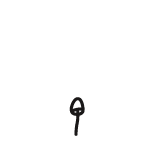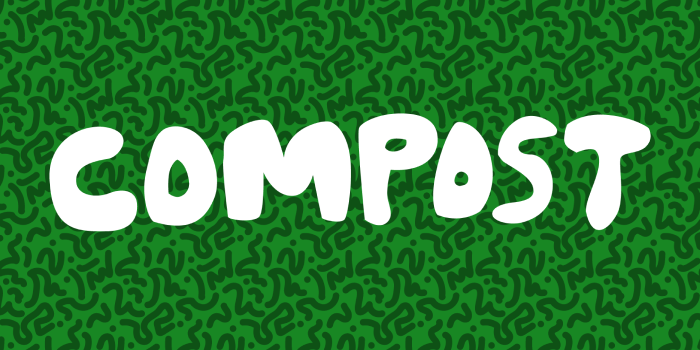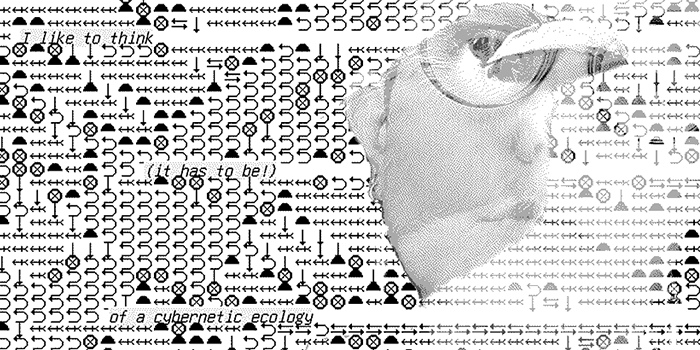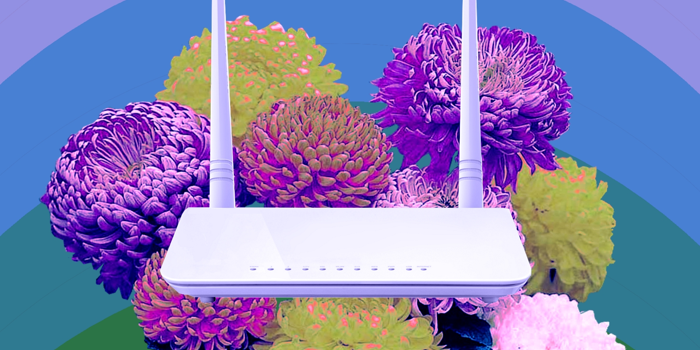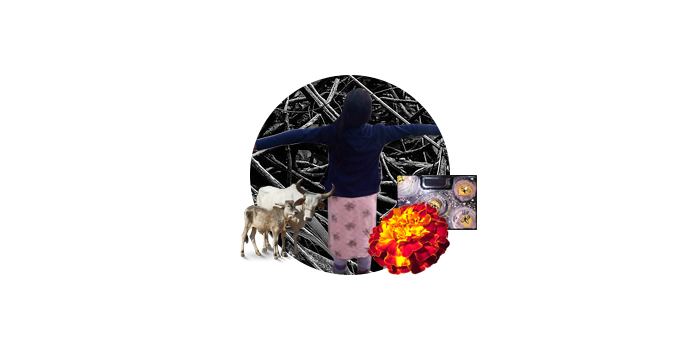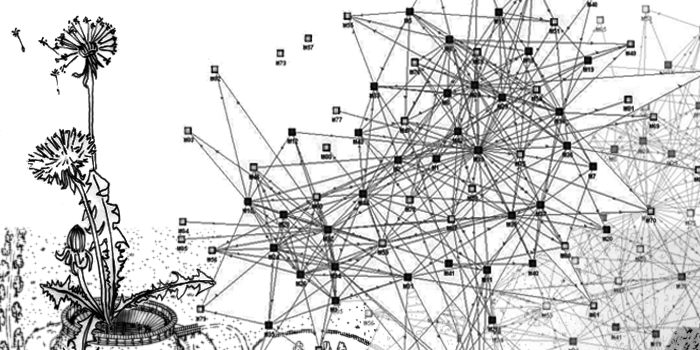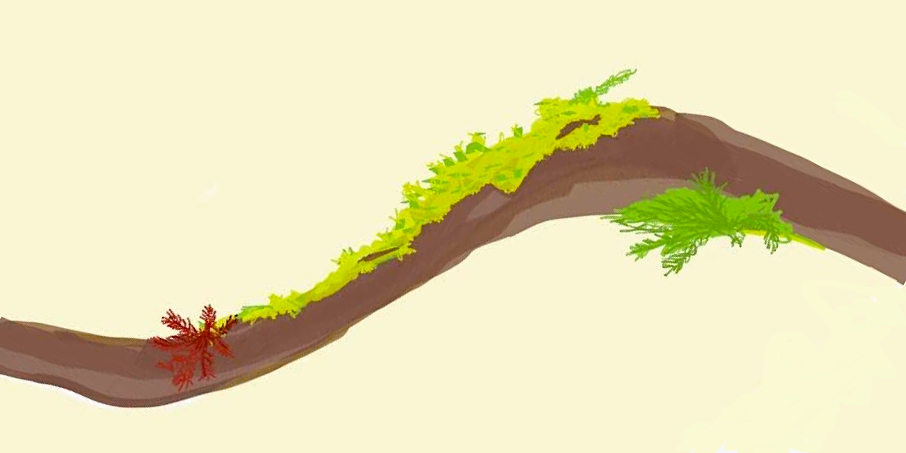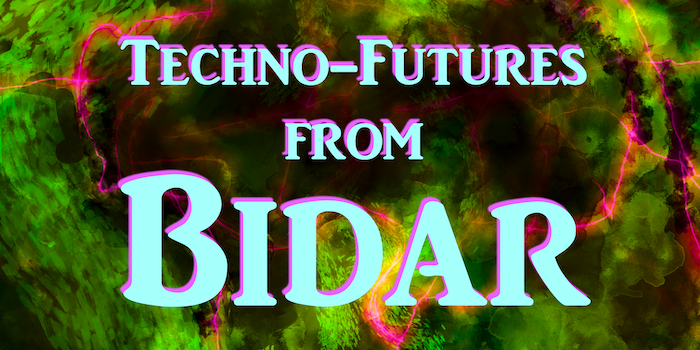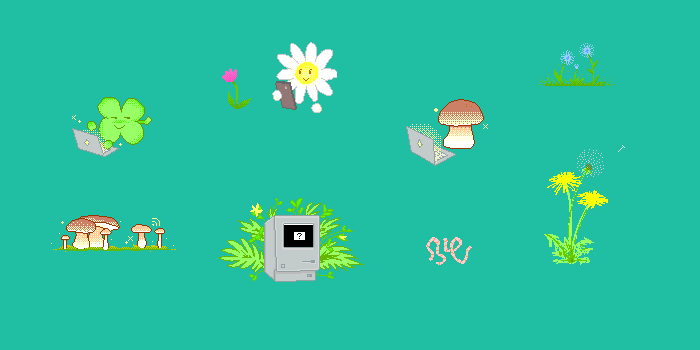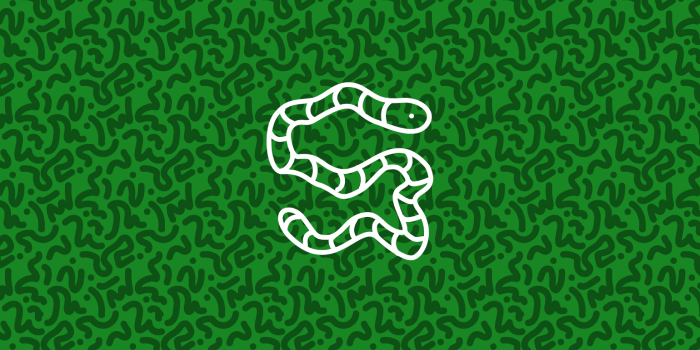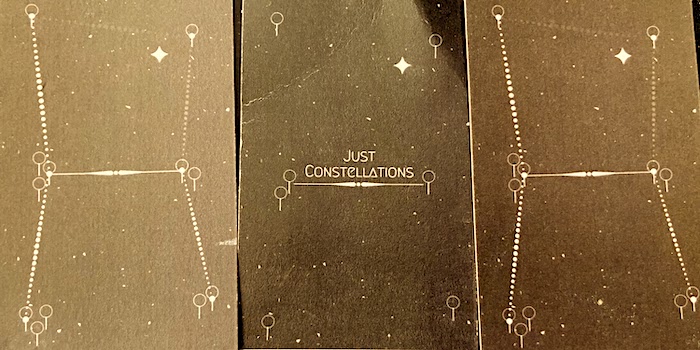
Image via Annie Howard
Repairing Broken Links
Growth and Renewal on the Decaying Web
I write these words three years since we lived together. Two and a half since the conference. A year and a half since you stopped texting me back. I remember our conversation as something like this:
I’m sitting on your couch, the beautiful leather thing I found two blocks away and brought back to our co-op, likely abandoned by a wealthy person who couldn’t tolerate sun damage. We are discussing lost friends and the ways we miss them. Together, we are ideating, a favorite word of ours, as we ponder a new web plugin we would launch in a few months at the Allied Media Conference in Detroit.
Our goal is to create an underground, abolitionist resource, a tool to connect social justice materials through the ties of human curation, lightly augmented by keywords affixed to user submissions. Looking to the night sky for inspiration, you’ll name it Just Constellations.
Our friendship helped me push past stubborn barriers. In you, I found a friend who gave me permission to use new pronouns, to imagine new kinds of gender and embodiment and free me of my inherited shame. I found a collaborator and conspirator. Someone to dance with. Someone to carry the difficult burden of living in a social justice co-op beset with financial difficulties layered onto fraught emotional relationships. In those heady, brief eight months of living together, I found someone who felt like a friend for the person I was becoming, not the one I was shedding. In your arms, I was ready to leave behind the dead weight of the past, to try a different approach.
As we ideate, I remember past selves and past relationships and feel their reach to the present moment. I feel the stinging loss of past loves, broken ties, and friends that won’t text back; but I also feel something new dawning within me, bound to the emergence of whatever it is we’re building together.
I ask: “What if every encounter, even with those people who once brought us great joy but aren’t beside us anymore, seed the soil of our perpetual becoming?”
As a historian, I have traced my life through the internet . But I was born just a few years too young to remember the halcyon days of an earnest intimate web full of Geocities sites and weird music blogs. Instead, I grew up amidst the thoroughly commodified web 2.0., finding myself in constant struggle with my own digital self-preservation.
Formative experiences that are less than five years old are now lost to me, at least in their original form. They existed on websites that proved too good to be true, too unprofitable to live on long enough for me to realize their impermanence.
Probably the most painful loss I’ve experienced on the web was on NewHive. The site was a platform for making creative webpages that I used in a digital humanities class called “Art, Writing, Technology” in the spring of 2016. Our task was simple: Each week, twice a week, use the platform, which combined rudimentary CSS coding with drag-and-drop capabilities, to make web pages that responded to challenges like creating a conceptual Twitter account or using a scanner to make time-based, stop-motion art.

Image via Annie Howard
For my concluding work, I brought my own whiteness into the frame in a piece called “Contort Myself,” drawing upon texts I’d been reading in an African American Studies class called Unsettling Whiteness. The video montage allowed me to examine my complicity with white supremacy and the contortions I’d experienced in trying to challenge it . To this day, the film is a marker of a very specific iteration of myself, with NewHive serving as a necessary conduit for the expansiveness I felt then. Even without having the experience of early-web experimentation, I encountered its vital possibilities on the platform.
Fragments from the class remain in my Dropbox, including the final edit of “Contort Myself.” But the web pages I made, the careful attention paid to tiled GIFs and juxtaposed images, are all gone. Today NewHive’s homepage teases the imminent return of an archive of all previously created work. It’s a promise that’s been unfulfilled for over a year.
On the web, nothing is ever certain to remain. Step away, and you’re likely to find dead links and inaccessible archives when you return. All the same, my pages do exist on a hard drive somewhere. Having recently spoken with one of the NewHive founders, I learned that they will return… eventually. While this possibility is genuinely thrilling, I ask myself: What happens when we encode new possibilities for ourselves online, only to watch past virtual selves obliterated by the platforms we once called home?

I should have seen the end coming. On the morning of our presentation, I scrambled to put together a quick tutorial for Just Constellations using NewHive. But the program was barely working. Though it came together in the end, the warning signs were right in front of me; despite the obvious, ever-encroaching decay, I failed to save my pages. It was riddled with broken image links on pages I’d just created days prior.

Image via Annie Howard
Despite the tenuousness of our web page and fledgling software, the conference presentation was a dream.
Too many other pieces of our shared archive remain deleted or inaccessible, but this image remains: the two of us, dressed in our gayest summertime finery, beaming in a conference room where we’d soon have an eager audience of co-creators. More than two dozen people came to share their incredible knowledge using our newly functional plugin, giving reality to our dream of constellating social justice resources. As I wrote in my journal that night: “In no way could I imagine how affirming our presentation would be. We of course have given it our all, but sharing that baby with the world is always going to be a leap of faith.”

Image via Annie Howard
Sad as it is to say, all relationships are too a leap of faith. There is no guarantee of persistence or longevity, however eternal they might feel in the moment. I wrote that weekend that “This whole thing wouldn’t have been possible or desirable in the first place without their magical energy and passion,” and that “I feel so unself-conscious in their presence, a sensation I’ve surely been missing as of late.” Even knowing all that would follow in the years after that momentous and challenging weekend, I wouldn’t trade it for anything. Rereading my journal now, the specific beauty of our shared adventures remains undimmed.
I’m still gutted by many changes in the time that followed. Our relationship shifted and grew silent as interpersonal dynamics within the co-op eroded the context for our shared becoming. It’s heartbreaking how the digital infrastructure we’d nurtured together now eludes us: so much of your impact remains within me, but absent are the traces of the work we’d done together, lost in the digital ether.

It was a strange experience to find Are.na while our collaboration on Just Constellations was ending. The platform embodied so many of our goals: nurtured within a dedicated community, the platform emphasized human curation as its driving mission, displacing the impersonal touch of most search engine algorithms. To see a platform embody the goals we’d staked for ourselves, operationalizing a different model of web connectivity that felt humane and generative instead of distracting and dehumanizing, was both reassuring and melancholic. Our distinct approach to connectivity, made effective on this already-vibrant website, reaffirmed our core vision while taking the wind out of our sails. Though many other factors pushed us apart, the success of Are.na, now a platform that structures my daily research practices, I marvel at the ways in which another group of people shared our vision and had brought it to wider adoption so successfully. Seeing Are.na thrive makes me thankful to have thought through these questions with you before, valuable not just for their contribution to the wider world, but to the personal growth our time together created.

Image via Annie Howard
Through my experiences with NewHive, Just Constellations, and Are.na, the personal growth each has enabled reminds me of the root and branch metaphor typically used in backend web development. One can imagine link decay, the persistent loss of web page accessibility affecting nearly half of all links every two years, as a metaphor not dissimilar to the organic processes that guide material decay in the natural world.
Any website still active need not persist endlessly in static form to have had some significance on the web, just as life itself cannot help but phase through changing cycles. So long as a page is tied together with some firmly-rooted body such as Wikipedia, one of the Web’s biggest homes of dead links, a now-expired web page can live on even in absence, decayed and deleted bits of information tending the soil of the web in its current lively formation. While digital archivists fight to preserve key components of a system that now serves 4.5 billion people daily, so too must we accept the realities of the natural world — how dead matter serves as the perpetual source of reemergence.
As we continue to grow in and through the internet, taking stock of its affordances and shortcomings, it seems necessary to hold tech companies more responsible for the perpetual loss of the self online. I’ve been fortunate to become friends in recent years with the artist Molly Soda , whose work examines the creation of identity on web platforms not designed to endlessly self-perpetuate. In mining the embarrassing and humanizing moments that populated platforms like LiveJournal and Tumblr, Soda’s work reminds us that just because past selves grow increasingly unrecognizable to us, glimpses of our embarrassing pasts should not keep us from appreciating their enduring significance to who we have become.
My experience, both as a historian and someone who grew up online, has dispelled any belief I may have had in the cautionary claim that whatever happens online will always be there to haunt you. As digitally native people make up a growing portion of the population, it is incumbent upon us to dispel this myth and assert that the opposite is often true: that which is not saved online will haunt us the longest. When platforms purposefully inhibit preservation, those lost traces may linger as ghosts of our past, hindering us from making sense of our experiences and moving on from them.
Web platforms are only a part of that equation, of course. When it comes to things like relationships, the bonds we form are ever-evolving and impossible to fossilize, just as the living internet will always trace back to links that stop functioning. But if the internet is fundamentally not meant for keeping, I’d still like to imagine what more it has to offer us. The frailty of profit-oriented projects that can delete tens of millions of people’s uploaded songs in an instant, as MySpace ‘accidentally’ did a few years ago, are not spaces that can honor the lives forged within them. Until we ask more of our platforms, profiles, avatars, and all the bits of our selves will go on being sacrificed in digital decay, whether we like it or not.
In her essay “On Keeping a Notebook" , Joan Didion warned that “we are well advised to keep on nodding terms with the people we used to be, whether we find them attractive company or not.” She added: “Otherwise, they turn up unannounced and surprise us, come hammering on the mind’s door at 4 a.m. of a bad night and demand to know who deserted them, who betrayed them, who is going to make amends.”
Though I do my best to make peace with my archivist impulses, I accept that perfect preservation is a logical fallacy, especially online. I can’t help but be haunted by Didion’s warnings: “We forget all too soon the things we thought we could never forget.”

I hope that the roots we’ve already planted may bear fruit for us both once more, changed from earlier blossomings long since decayed but made heartier by lessons learned in more fallow times. Even if we cannot reemerge together, your presence in the root structure of my life remains secure, sustaining a firmament that can withstand your absence. While the memories we built through the internet persist in decayed form, I am grateful for anything that’s been preserved, even as I long for so much more.

Annie Howard is a journalist, historian, and urbanist based in Chicago. Her writing can be found in The Guardian, The Baffler, The Nation, and elsewhere. Their website is annie-howard.com.








